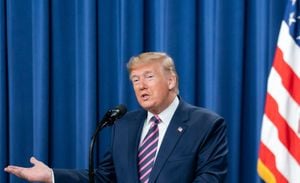Corning Inc. finds itself at the center of scrutiny from the European Union as authorities investigate allegations of anti-competitive practices connected to its popular Gorilla Glass. This specialized glass has become synonymous with break-resistant smartphone displays, making it ubiquitous across countless devices worldwide, but with increasing market power come significant responsibilities.
The EU's competition watchdog has initiated formal proceedings to determine whether Corning has leveraged its dominance to hinder competition through exclusive agreements with smartphone manufacturers. Such practices could limit access to alternative glass suppliers, potentially restricting consumer choices and innovation within the industry.
Margrethe Vestager, the European Commission's Executive Vice-President responsible for competition policy, stated, "We are investigating if Corning, a major producer of this special glass, may have tried to exclude rival glass producers, thereby depriving consumers of cheaper and more break-resistant glass." This sentiment underlines the EU's commitment to ensuring fair competition and safeguarding consumer interests.
Caught between its esteemed reputation and the brewing controversy, Corning's Gorilla Glass is marketed for its scratch resistance and durability, and has become the industry standard for mobile devices. With its reach extending to tablets and smartwatches, the glass demonstrates Corning's significant foothold within the global technology arena, which raises concerns about its capacity to stifle rivals.
The crux of the investigation centers on whether Corning's supply agreements with Original Equipment Manufacturers (OEMs) and glass refiners have effectively created barriers for competitors. If found to be violating antitrust laws, Corning could face steep penalties, potentially amounting to as much as 10% of its annual global revenue. Yet, the firm has the opportunity to respond to these preliminary findings, potentially disputing the accusations laid against it.
This latest inquiry follows the EU's broader trend of investigating major tech companies for anti-competitive behavior. Recently, the European Union has taken steps against firms like Apple and Google, with the former facing two proceedings under the Digital Markets Act and the latter fined over €2.42 billion. These measures highlight the EU's aggressive stance on maintaining competitive markets, particularly as technology becomes increasingly intertwined with everyday life.
With Corning's reputation hanging delicately in the balance, the outcome of this antitrust investigation could redefine the company's dealings within the smartphone market. If the EU determines Corning has engaged in anti-competitive practices, the repercussions could extend beyond financial penalties and affect future relationships with manufacturers, developers, and consumers alike. This situation calls to mind the delicate dance between innovation, competition, and regulation.
Europe's regulatory environment has become increasingly complex for tech giants, with stringent measures aiming to curb monopolistic behaviors. The emphasis on consumer welfare and choice, coupled with threats of significant fines, may reshape how companies like Corning navigate their business strategies.
While the inquiry marks another chapter in the EU's battle for fair competition, it remains to be seen how this will influence technological advancements and market dynamics for both Corning and its competitors. The investigation serves as a reminder of the responsibilities firms face when they've placed their stakes firmly within rapidly advancing markets.
Industry observers are now watching closely as regular updates and potential responses from Corning will likely shape the narrative of this investigation. With finished products depending on the materials offered by Corning, the industry waits to see if this scrutiny brings changes, or merely diminishes the company's otherwise illustrious reputation.
This investigation sparks larger conversations about the role of dominant companies and the importance of fostering fair competition. With consumer demand inevitably driving market dynamics, regulators increasingly find themselves walking the tightrope between promoting innovation and maintaining equitable access to resources.
Whether the outcome serves to bolster or challenge Corning's market position, one thing is clear: the future of Gorilla Glass and its competitors hangs delicately poised at the intersection of regulation and innovation, particularly within Europe’s eclectic technological marketplace.



